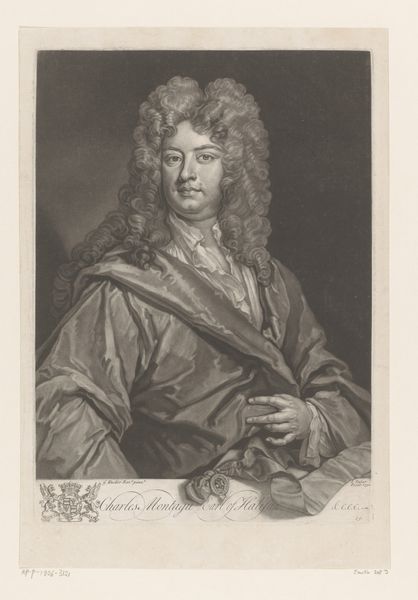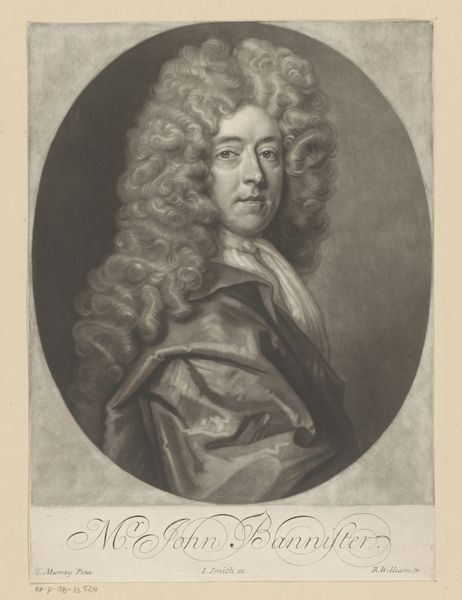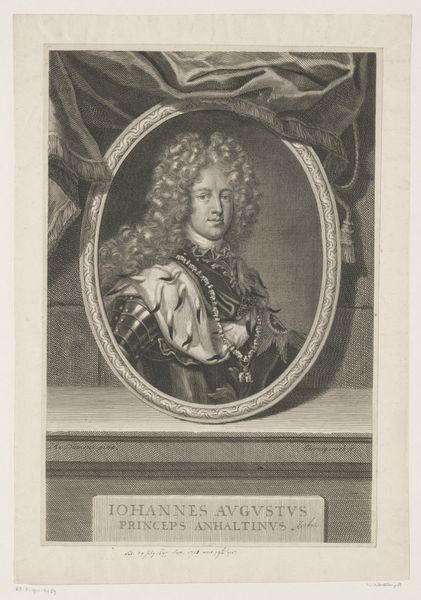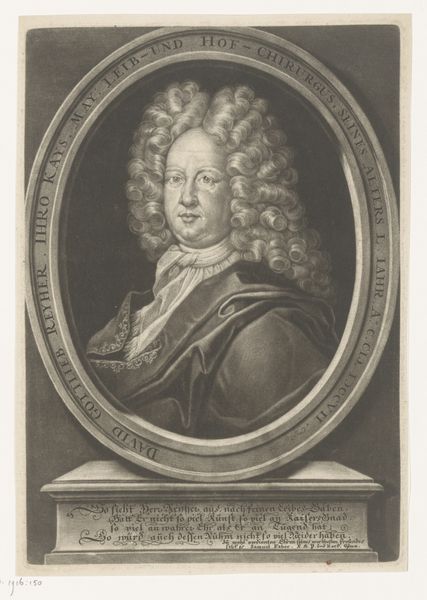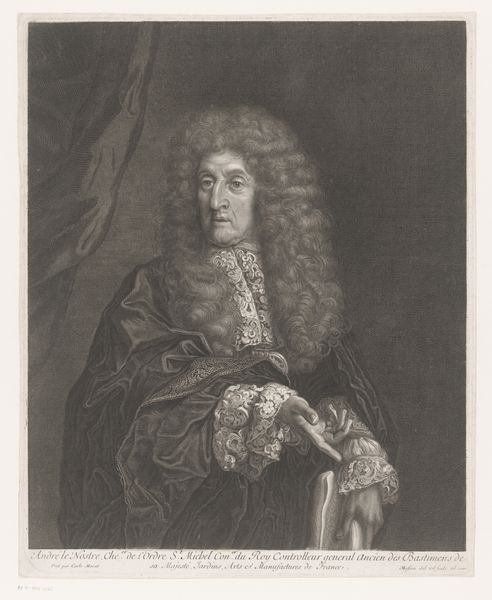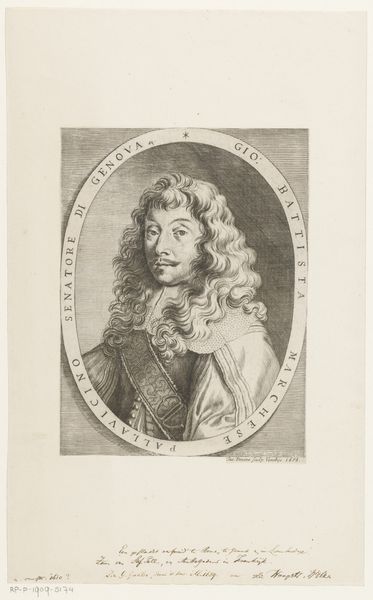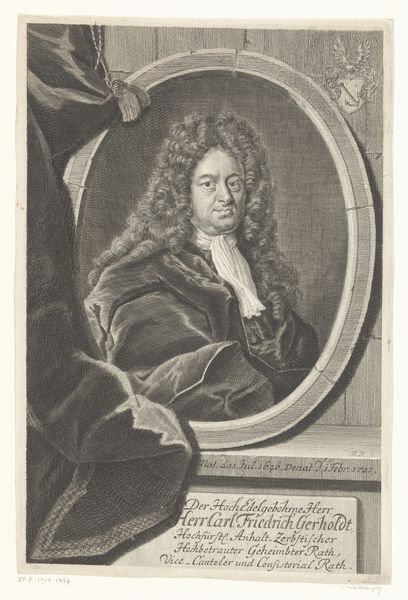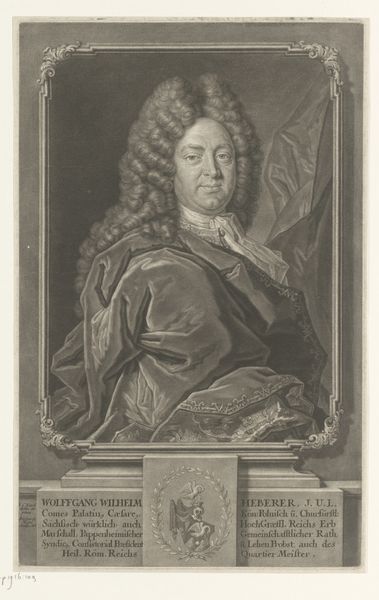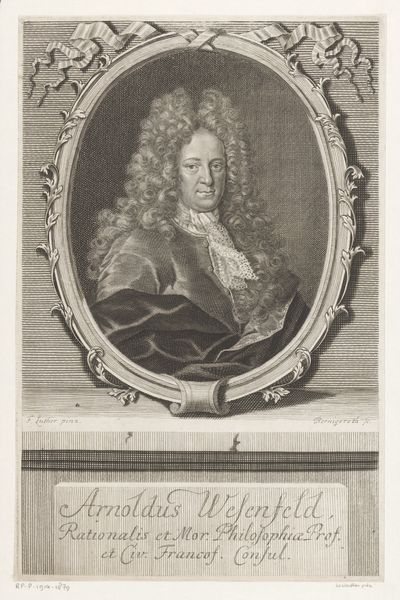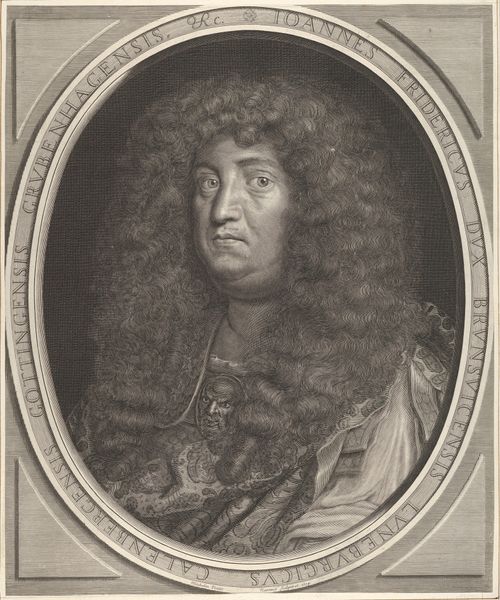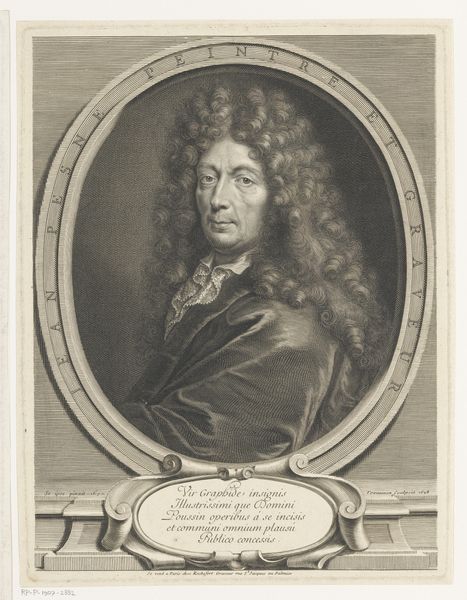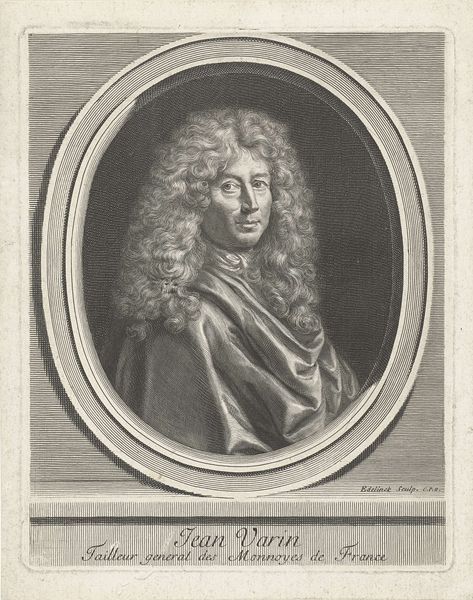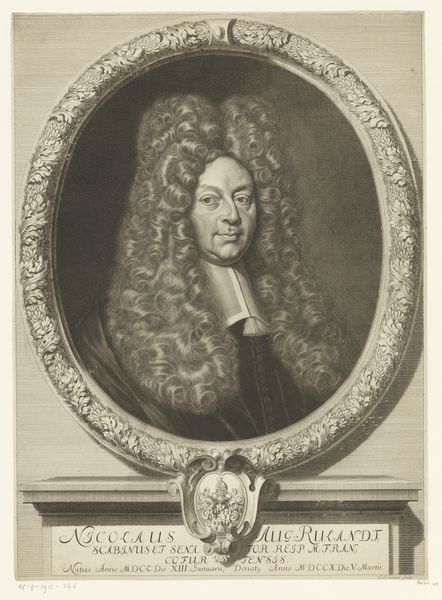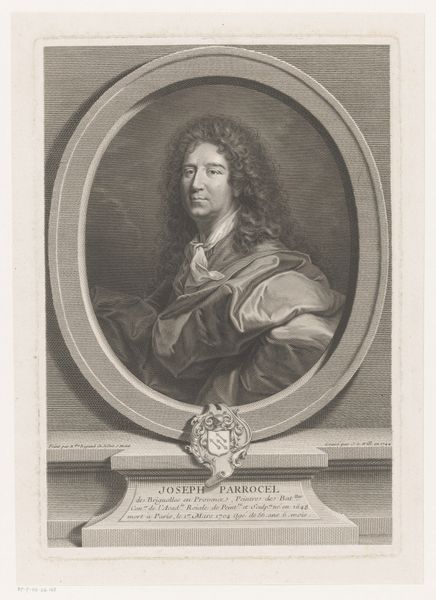
drawing, print, engraving
#
portrait
#
drawing
#
baroque
# print
#
portrait reference
#
pencil drawing
#
portrait drawing
#
engraving
Dimensions: height 364 mm, width 260 mm
Copyright: Rijks Museum: Open Domain
This is Pierre Drevet's portrait of Charles Montague. Though we don't have a date, Drevet was active in the late 17th and early 18th centuries, using a printmaking technique called engraving. Consider the material reality of the artwork. It's made up of thin lines meticulously cut into a copper plate with a tool called a burin. These lines hold ink, which is then transferred to paper under immense pressure. The final image is a result of countless hours of skilled labor, and the lines vary in thickness and density to create tone and texture. Notice the way Drevet uses these to mimic the rich fabric of Montague’s robe, and the cascading curls of his wig. Engraving was a key technology for disseminating images and information at this time, allowing portraits like this one to circulate widely. This speaks to the rise of both consumer culture, and a more modern form of political life. By understanding the materials and making of this print, we can appreciate its significance as more than just a picture; it’s a window into the world of early modern Europe, where art, labor, and commerce were becoming increasingly intertwined.
Comments
No comments
Be the first to comment and join the conversation on the ultimate creative platform.
